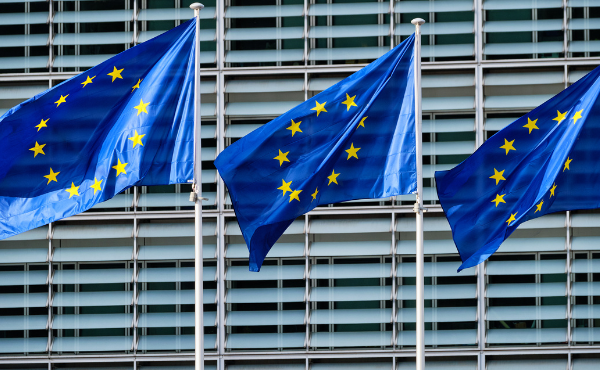
The ECGI blog is kindly supported by

Ending Human Rights Abuses in which Companies and States are Complicit
The Commission’s proposal will make the relevant standards directly and legally binding on large companies in the EU and on some third country companies doing substantial business in the EU.
After a couple of years of intense controversy, the European Commission produced in February a proposal for a Directive on Corporate Sustainability Due Diligence, and put its proposal into the Union’s legislative process. Sustainability is a word of many meanings. Its meaning in the context of this proposal is specific: compliance with certain international treaties and conventions on human rights and the protection of the environment. Traditionally, these treaties have applied only between and among states. The Commission’s proposal will make the relevant standards directly and legally binding on large companies in the EU and on some third-country companies doing substantial business in the EU. As such, it is a recognition of the only partial success of the traditional inter-state system in these areas. Rather surprisingly, however, while aimed at supplementing states’ human rights and environmental obligations, the proposal ignores almost entirely the interrelationship between companies and states.
In addition, the proposal requires companies to remove or reduce the risks of ‘adverse impacts’ arising out of breaches of the international standards.
The proposal is entitled to a due diligence proposal, but it requires more than that if due diligence is understood as merely finding and evaluating the risks before you commit yourself. In addition, the proposal requires companies to remove or reduce the risks of ‘adverse impacts’ arising out of breaches of the international standards. These risks are to be assessed throughout the company’s ‘value chain’. This means looking at relations with customers as well as suppliers and assessing business relations, not only with subsidiaries and affiliates but also with contractors and sub-contractors (at least if those relationships are ‘established’ — a term imprecisely defined in Art 3(f)). Having identified those risks (as required by Art 6), the company must take steps to prevent the occurrence of potential adverse impacts or reduce the probability of their happening (Art 7, including risks that should have been identified under Art 6 but were not). The company must also take steps to bring actual occurrences to an end or to minimise their impact, including the payment of financial compensation (Art 8). Under both Arts 7 and 8 companies may be required as a final step to end the business relationship in which the breaches are occurring, either temporarily or permanently.
The company’s actions under Arts 6-8 are subject to supervision by authorities (to be established in each Member State, not a Union level), which are to have a wide range of enforcement powers, including the imposition of financial penalties linked to turnover. In addition, those harmed by adverse impacts are to be given a right to sue companies in the courts of the Member States (for damages among other remedies), though it is unclear from Art 22 how far the Member State needs to modify its domestic liability system when transposing that Article.
One way to think about what the above might mean for companies is to ‘stress test’ the provisions in the context of the most distressing, widespread and difficult-to-fix human rights cases which recent litigation around the world has revealed. These are cases where the host state of a multinational’s operations is complicit in the abuses. Although putting the emphasis the other way around, the 2008 Ruggie Report for the UN Human Rights Council, which was in many ways the precursor of the proposals now appearing in the Commission’s draft, supports this point. Having surveyed the worst allegations of corporate-related human rights harm, it reported in para 16 that ‘a significant fraction of the allegations involved companies being complicit in the acts of government or armed factions’.
It appears the governments were prepared to commit these abuses against their own citizens because they regarded the businesses as essential to the development of their economy and/or because they had a significant equity stake in those businesses.
The reported cases give support to this statement. In Kiobel v Royal Dutch Petroleum Co (569 US 108 (2013), US Supreme Court) the allegation was that the Nigerian government engaged in the violent suppression of Nigerian communities protesting against pollution resulting from a pipeline operated by Shell. (The Court held the claim did not fall within the Alien Torts Statute.) In Nevsun Resources Ltd v Araya (2020 SCC 5) the Supreme Court of Canada refused to strike out (but did not substantively decide) a claim that Nevsun had breached the human rights of Eritrean citizens who had been subject to a system of forced labour in the construction and operation of a mine which was operated by the defendant. The forced labour system took the form of a mandatory national service programme operated by the government, under which workers were supplied to those constructing and operating the mine. The construction companies were owned and operated by persons who were part of the political and social elites of Eritrea. It appears the governments were prepared to commit these abuses against their own citizens because they regarded the businesses as essential to the development of their economy and/or because they had a significant equity stake in those businesses.
In other cases the harm was not initiated by the host state but that state failed in its duty to maintain law and order. In Okpabi v Royal Dutch Shell ([2021] UKSC 3) the UK Supreme Court held it had jurisdiction to entertain a claim against the Shell English parent company by communities whose drinking water had been contaminated by spills from a pipeline operated by a Nigerian subsidiary. The spills were apparently the result of sabotage and other criminal acts by third parties, which the state had not prevented and perhaps even in some part condoned. In AAA v Unilever ([2018] EWCA Civ 1532) the Court of Appeal held the English parent Unilever company not liable on a tort theory when there was a national breakdown of law and order and widespread inter-tribal violence, during which employees of the defendant, living and working on tea plantations, suffered violent personal attacks.
Generally, however, there will be a competitor, either local or based in a home state with a different view of human rights, which is willing, indeed anxious, to replace the incumbent, acquiring its assets at a discounted price.
The question these stark cases raise is, what is it appropriate to require the company to do in response? On the one hand, it is not appropriate to permit the company to turn a blind eye to the abuses simply because they result from the action or inaction of the host state. On the other hand, bringing them to an end on a permanent basis is likely to require the re-setting of embedded political and social structures in the host state, something which it is unlikely that the company has either the capacity or the legitimacy to bring about by itself. In a few rare cases, the company’s threat of exit will give it the necessary leverage to bring about a change in the host state’s behaviour. Generally, however, there will be a competitor, either local or based in a home state with a different view of human rights, which is willing, indeed anxious, to replace the incumbent, acquiring its assets at a discounted price.
In the absence of such leverage, the incumbent will be faced with the choice between actual exit and remaining and exercising voice, which, given the limitations on the company’s leverage, will probably produce a less than complete remediation of the abuses. If one runs the above scenarios through Art. 8 of the proposed Directive, it is far from clear what analysis the supervisory bodies or courts of the Member States will apply. There is some general language in Art 8 upon which the company could seek to rely to justify the (limited) extent of its reaction, such that the company is required to take only ‘appropriate measures’ to bring actual adverse impacts to an end or to take mitigating measures only to the extent that they are ‘proportionate’ to the ‘contribution of the company’s conduct to the adverse impact’. However, it will be very difficult for the company to judge ex-ante how supervisors or courts will make the judgements inherent in these tests, whilst the mere fact of litigation, even if the company is successful, may entail a reputational harm which the board assesses as too severe for the company.
Thus, companies are likely to favour exit. The Recitals 32, 36 and 41 to the proposal state that exit should be a ‘last-resort’ action, but this is true only in the sense that exit is placed at the end of the list of actions supervisors may require of companies. But, as a commercial matter, exit is always available to companies. Thus, Unilever, although winning the case against it in the English courts, shortly afterwards decided to dispose of its tea plantations and associated brands to a private equity company. According to an analysis in the Financial Times (‘How Unilever’s tea business became a test of private equity’s conscience’, 16 February 2022), this was because Unilever feared the reputational harm it would suffer if it held onto them and, in particular, a downgrading of its ESG ratings, risks to which the private equity company was thought to be less exposed. Equally, the decision by Shell to exit its on-shore oil production activities in Nigeria (but to retain the off-shore ones) was apparently driven in part by a desire to reduce the reputational harm it was suffering from repeated litigation. There is nothing in either company’s actions that suggests that, in the first case, the risk of harm to the employees from inter-communal conflict or, in the second, of environmental degradation from the pipeline will be reduced by the exit.
A company playing its part in the cooperation should be granted protection against both litigation and supervisory action
In my view, litigation and straight-down-the-line supervisory action are unlikely to bring about a satisfactory forward-looking resolution to these deep-seated problems. If exit is to be a true last resort for companies covered by the proposal, what is needed is an inducement for companies to exercise voice rather than exit. And that voice is likely to have to be, not that of the company alone, but part of a cooperation among the company, the host state, local communities and overseas development agencies. A company playing its part in the cooperation should be granted protection against both litigation and supervisory action. Look as hard as one likes, however, no such safe harbour provisions are to be found in the Commission’s proposal. In fact, Art 18(4) specifically rules out protection against supervisory sanctions and private litigation when the company engages in remedial action after being found in breach. In short, the proposal is a standard, backward-looking set of provisions for imposing liability on companies, not a blueprint for cooperative efforts to end abuses in the future. In the most difficult cases where it is most desirable to alter behaviour, exit is what the Commission’s proposal is likely to induce, with uncertain or no benefits for the victims of the abuses.
Paul Davies is a Senior Research Fellow at Harris Manchester College, University of Oxford
The ECGI does not, consistent with its constitutional purpose, have a view or opinion. If you wish to respond to this article, you can submit a blog article or 'letter to the editor' by clicking here.
An initial version of this article ‘Ending Human Rights Abuses in which Companies and States are Complicit’ by Paul Davies was published at the Oxford Business Law Blog, the University of Oxford on 05 April 2022.
This post is published as part of a new OBLB series on ‘The Corporate Sustainability Due Diligence Directive Proposal’.




